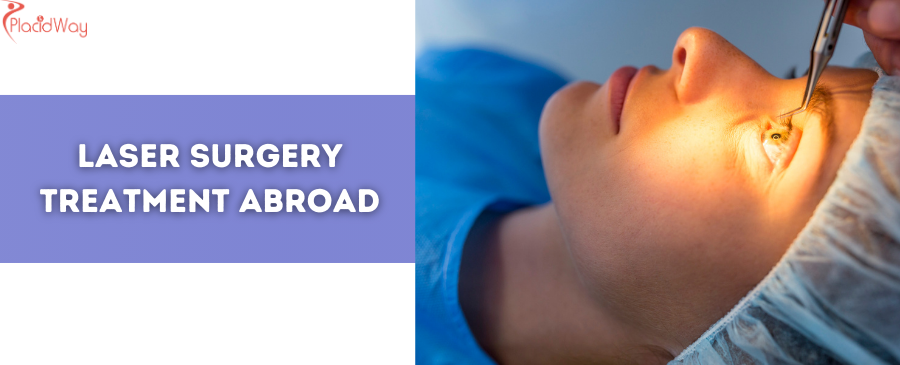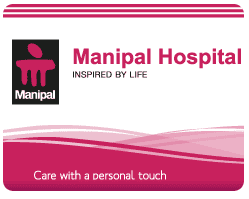
Your Guide to Laser Surgery Abroad
Are you considering a medical procedure that promises precision, minimal downtime, and effective results? Laser surgery, a revolutionary medical advancement, offers exactly that. This cutting-edge technology utilizes highly focused light beams to treat a myriad of conditions, making it a cornerstone of modern medicine. From vision correction to dermatological treatments, and even intricate internal surgeries, laser technology is transforming patient care worldwide.
For many, the prospect of undergoing laser surgery is exciting, but concerns about cost, wait times, or access to the latest technology can be daunting. This is where medical tourism shines. By exploring laser surgery options abroad, patients can access state-of-the-art facilities, highly skilled surgeons, and often significantly more affordable prices, all while experiencing a new culture. PlacidWay helps you navigate this journey, connecting you with top international clinics that specialize in various laser surgery procedures.
Whether you're looking to regain clear vision, rejuvenate your skin, or address a more complex medical issue, understanding the possibilities of laser surgery—especially through the lens of medical tourism—can open doors to life-changing treatments. Let's delve into everything you need to know about this advanced procedure and how you can pursue it globally.
What are the benefits of choosing laser surgery abroad?
Choosing to undergo laser surgery in another country offers a compelling blend of advantages. The most apparent benefit is often the substantial cost reduction. Patients can save anywhere from 30% to 70% compared to prices in their home country, without compromising on quality. This financial relief makes life-changing procedures accessible to a wider demographic.
Beyond affordability, international clinics frequently boast cutting-edge laser technology and highly specialized surgeons who perform a high volume of specific procedures, leading to greater expertise. Furthermore, countries known for medical tourism often have shorter waiting lists, allowing patients to receive timely treatment without prolonged delays. Many also find the added privacy and the chance to recover in a serene, unfamiliar environment highly appealing. Imagine undergoing your vision correction surgery and then relaxing on a beautiful beach during your recovery – it transforms a medical necessity into a holistic wellness experience.
Which countries are best known for high-quality laser surgery?
Several nations have established themselves as leaders in medical tourism for laser surgery, attracting patients from around the globe. Each country often specializes in particular areas of laser treatment:
- Turkey: Especially popular for ophthalmic laser surgeries like LASIK and PRK, as well as cosmetic dermatology. Turkish clinics are known for modern facilities and experienced surgeons at competitive prices.
- Mexico: A top destination for North Americans seeking affordable dental laser procedures, vision correction, and various cosmetic laser treatments. Its proximity and quality make it a convenient choice.
- South Korea: A global pioneer in aesthetic and cosmetic laser procedures, including advanced skin resurfacing and scar removal techniques. They are at the forefront of medical technology.
- India: Offers a wide range of laser surgeries, from ophthalmology to general surgery, with excellent English-speaking medical staff and internationally accredited hospitals, all at a fraction of Western costs.
- Thailand: Known for its luxurious hospitals, comprehensive medical tourism packages, and high-quality cosmetic laser treatments and dermatology.
These countries not only provide state-of-the-art medical care but also offer a welcoming environment for international patients, often with dedicated medical tourism facilitators.
How does medical tourism for laser surgery work?
The process of arranging laser surgery abroad might seem complex, but with the right guidance, it can be remarkably smooth. Here’s a typical step-by-step breakdown:
- Research & Consultation: You start by identifying your specific laser surgery needs and researching potential destinations and clinics. Platforms like PlacidWay help connect you with vetted international providers. You'll have an initial online consultation, often involving sending medical records for evaluation.
- Treatment Plan & Quote: Based on your consultation, the chosen clinic will provide a personalized treatment plan, including the specific laser procedure, estimated duration, and a transparent cost breakdown.
- Travel & Accommodation: Once you confirm your treatment, you’ll arrange your travel logistics. Many clinics or medical tourism facilitators offer assistance with flights, airport transfers, and local accommodation.
- Procedure & Recovery: Upon arrival, you'll undergo pre-operative assessments before the laser surgery. Post-procedure, you'll enter a recovery phase, which might involve staying in the destination for a few days to a few weeks, depending on the procedure.
- Aftercare & Follow-up: Clinics provide detailed post-operative instructions. For ongoing care, they may coordinate with your local doctor or offer virtual follow-up consultations.
Think of it as planning a trip where your health is the primary destination. PlacidWay acts as your travel agent and medical guide, ensuring every detail, from pre-travel consultations to post-operative care, is handled efficiently.
What should I consider when selecting a clinic for laser surgery overseas?
Selecting the right clinic is paramount for a successful laser surgery experience abroad. It’s not just about the lowest price, but about ensuring quality, safety, and excellent outcomes. Here are key factors to consider:
- Accreditation: Look for international accreditations like Joint Commission International (JCI), which signifies adherence to global healthcare standards.
- Surgeon's Credentials: Verify the surgeon's board certifications, years of experience, specialization in your specific laser procedure, and the number of procedures they perform annually. Don’t hesitate to ask for their CV.
- Technology & Equipment: Ensure the clinic uses the latest generation of laser technology relevant to your procedure. Older equipment might not offer the same precision or results.
- Patient Reviews & Testimonials: Seek out genuine reviews and testimonials from past international patients. This offers insights into patient experience, clinic service, and post-operative care.
- Communication & Language Support: Confirm that the medical staff, especially your surgeon, can communicate effectively in English or that the clinic provides professional interpreters.
- Comprehensive Packages: Inquire about all-inclusive packages that cover airport transfers, accommodation, and post-operative check-ups to avoid hidden costs and streamline your trip.
A reputable clinic will be transparent about these details and happy to answer all your questions, making you feel confident and secure in your decision.
Are there any risks associated with undergoing laser surgery in another country?
While medical tourism offers numerous benefits, it's crucial to be aware of potential risks. Not all countries or clinics adhere to the same stringent standards. One significant concern is varying regulatory oversight, which could impact the quality of care or equipment. Communication can also be an issue if there’s a language barrier, potentially leading to misunderstandings about your treatment or aftercare instructions. Furthermore, if complications arise post-surgery, navigating legal recourse or seeking follow-up care from your home country might be challenging.
However, these risks can be largely mitigated. Thorough research, utilizing established medical tourism facilitators like PlacidWay, and selecting internationally accredited clinics (e.g., JCI accredited) are key. Always ensure you have a clear understanding of the entire process, including contingency plans. It’s also wise to discuss your travel plans and post-operative care with your local doctor before departing, ensuring continuity of care if needed.
What is Laser Surgery and how does it work?
Laser surgery, or light amplification by stimulated emission of radiation, involves using focused beams of light to perform various medical procedures. Unlike traditional scalpels, lasers allow for extreme precision, minimizing damage to surrounding healthy tissue. The principle behind it is that different tissues absorb light at different wavelengths. By choosing the right type of laser, surgeons can specifically target and treat a particular area without affecting adjacent cells.
For example, in ophthalmology, excimer lasers are used to reshape the cornea to correct vision, while in dermatology, CO2 or erbium lasers can precisely remove damaged skin layers for resurfacing. The laser's energy can either cut (like a "light scalpel"), vaporize (burn away tissue), or coagulate (seal blood vessels to stop bleeding). This precision leads to less bleeding, reduced pain, lower risk of infection, and often faster recovery times compared to conventional surgical methods.
What are the different types of laser surgery procedures available?
The versatility of laser technology means it's employed across a broad spectrum of medical specialties, addressing various conditions:
- Ophthalmology (Eye Surgery):
- LASIK and PRK: Common procedures using excimer lasers to reshape the cornea and correct refractive errors like nearsightedness, farsightedness, and astigmatism, significantly reducing or eliminating the need for glasses or contact lenses.
- Cataract Surgery: Femtosecond lasers can be used to perform key steps of cataract surgery with greater precision.
- Glaucoma Treatment: Lasers can reduce eye pressure.
- Dermatology (Skin Treatments):
- Skin Resurfacing: CO2 and Erbium lasers remove damaged outer layers of skin to treat wrinkles, scars, and sun damage, promoting new collagen growth for smoother skin.
- Hair Removal: Diode and Alexandrite lasers target hair follicles, inhibiting future hair growth.
- Tattoo Removal: Q-switched lasers break down tattoo pigments into smaller particles that the body can clear.
- Vascular Lesion Removal: Pulsed dye lasers treat spider veins, port-wine stains, and rosacea.
- General Surgery:
- Tumor Removal: Lasers can precisely excise small tumors or lesions, particularly in areas like the throat, colon, or cervix.
- Varicose Vein Treatment: Endovenous laser treatment (EVLT) uses lasers to close off diseased veins.
- Dentistry:
- Gum Contouring: Lasers can precisely reshape gum tissue.
- Cavity Preparation: In some cases, lasers can remove decayed tooth material before filling.
- Periodontal Disease: Lasers assist in treating gum infections.
- ENT (Ear, Nose, Throat):
- Snoring Treatment: Lasers can tighten or reduce tissue in the soft palate.
- Removal of Polyps or Lesions: Precision is key in delicate areas.
Each type of laser surgery is tailored to the specific tissue and condition being treated, showcasing the remarkable adaptability and effectiveness of this technology.
Am I a suitable candidate for laser surgery?
Determining your suitability for laser surgery requires a comprehensive evaluation by a qualified specialist, as criteria vary significantly between different procedures. Generally, candidates should be in good overall health, free from certain chronic conditions that could impair healing, and have realistic expectations about the outcomes.
For example, with LASIK eye surgery, ideal candidates are typically over 18, have stable vision prescriptions for at least a year, and have healthy corneas. Conditions like severe dry eyes, very thin corneas, pregnancy, or certain autoimmune diseases might make you unsuitable. For dermatological laser treatments, factors like skin type, recent sun exposure, and history of keloid scarring are considered. During your initial consultation, the specialist will review your medical history, perform diagnostic tests, and discuss any potential contraindications to ensure the procedure is safe and effective for you.
What is the recovery process like after laser surgery?
One of the significant advantages of laser surgery is often a quicker and less complicated recovery process. Since lasers are highly precise and minimally invasive, there's less tissue trauma, which translates to reduced pain, swelling, and a lower risk of infection compared to open surgery. However, the exact recovery timeline and experience will vary significantly depending on the specific type of laser surgery performed.
For instance, after LASIK eye surgery, patients often experience immediate vision improvement and can typically return to light activities within a day or two, though full stabilization of vision can take weeks. For skin resurfacing, there might be redness, swelling, and peeling for a week or more, followed by prolonged redness. It's crucial to follow all post-operative instructions provided by your surgeon, which may include applying ointments, taking prescribed medications, avoiding direct sun exposure, and refraining from strenuous activities to ensure optimal healing and results. Your international clinic will provide detailed guidance to help you navigate your recovery.
How long do the results of laser surgery last?
The permanence of laser surgery results depends heavily on the type of procedure and individual patient factors. For many procedures, the results are considered permanent or very long-lasting. For example, the vision correction achieved through LASIK or PRK is generally permanent, as the cornea's shape is structurally altered. While age-related changes like presbyopia (farsightedness due to aging) can still occur later in life, the initial refractive error correction remains.
For dermatological laser treatments, such as skin resurfacing for wrinkles or scar removal, the results can be long-lasting, but they are not always permanent. The skin continues to age, and environmental factors like sun exposure can cause new damage. Patients might choose periodic maintenance treatments to sustain the improvements. Similarly, laser hair removal often achieves permanent reduction, but some regrowth might occur over time, necessitating touch-up sessions. Your surgeon will provide specific information regarding the expected longevity of your particular laser treatment during your consultation.
How does the cost of laser surgery compare globally?
One of the primary drivers for medical tourism for laser surgery is the substantial cost difference. Prices can fluctuate wildly from one country to another, primarily due to variations in labor costs, overheads for clinics, malpractice insurance, and general economic factors. Patients from high-cost healthcare regions like the United States, Canada, or Western Europe can find procedures significantly more affordable in countries like Turkey, Mexico, India, or Thailand.
For example, a laser eye surgery procedure that might cost several thousand dollars per eye in the US could be performed for a fraction of that price in a leading clinic in Istanbul or Mexico City, often with identical or even more advanced technology. This makes complex or multiple laser treatments far more accessible. However, it's crucial to obtain comprehensive quotes that include all aspects of care, from initial consultation to post-operative follow-ups, to get a true comparison. The table below illustrates typical price ranges for common laser procedures.
| Procedure (Example) | USA (Approx. USD) | Turkey (Approx. USD) | Mexico (Approx. USD) | Thailand (Approx. USD) |
|---|---|---|---|---|
| LASIK Eye Surgery (per eye) | $2,000 - $3,500 | $700 - $1,300 | $600 - $1,100 | $900 - $1,600 |
| Full Face Laser Skin Resurfacing | $3,000 - $7,000 | $1,500 - $3,000 | $1,200 - $2,800 | $1,800 - $3,800 |
| Laser Tattoo Removal (per session) | $200 - $500 | $50 - $150 | $40 - $120 | $60 - $180 |
*Note: Prices are approximate and can vary significantly based on clinic, surgeon's experience, specific technology used, and complexity of the case. Always obtain a personalized quote.
Take the Next Step with PlacidWay
Ready to experience the precision and effectiveness of laser surgery at an affordable cost? Your journey to clearer vision, smoother skin, or improved health is just a click away. Explore top-rated international clinics, compare prices, and get a free, personalized quote for your laser surgery with PlacidWay. Let us help you plan a seamless and transformative medical travel experience. Start your healing journey today!






Share this listing